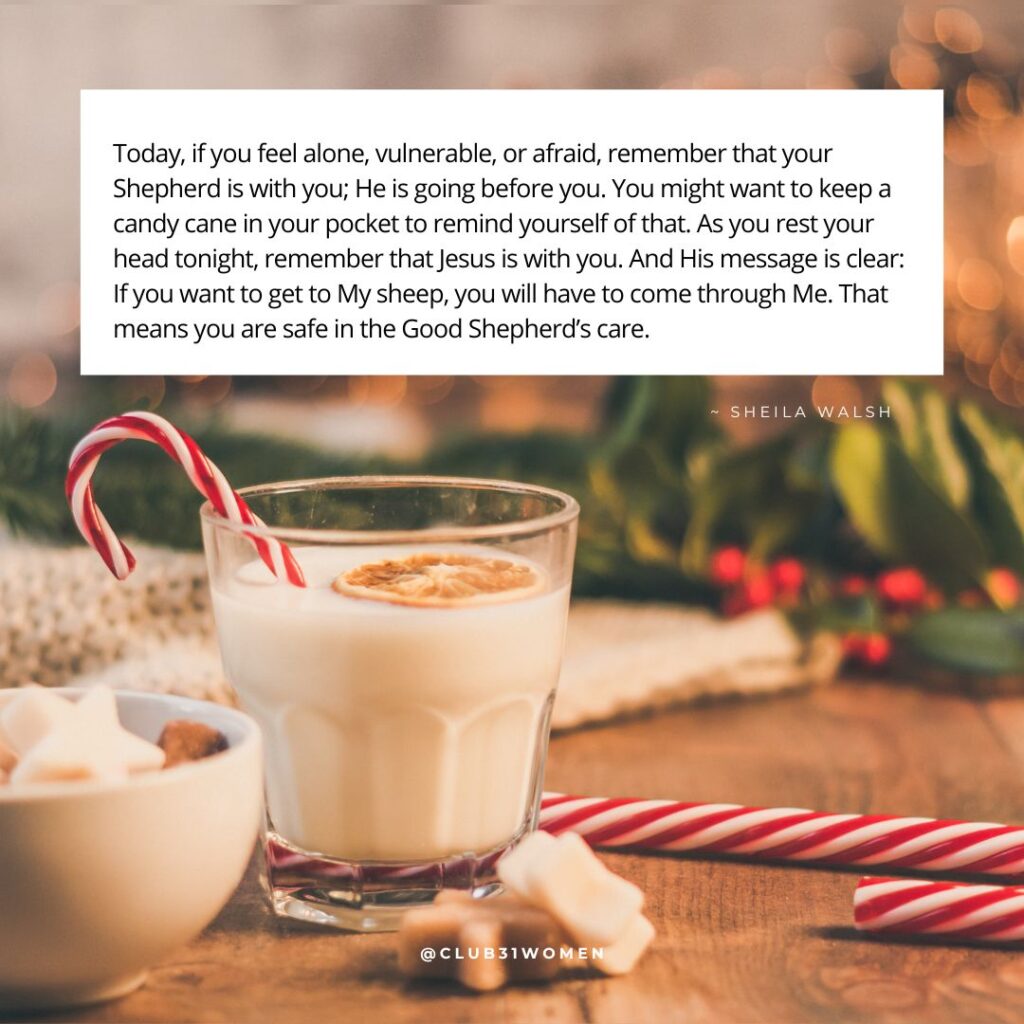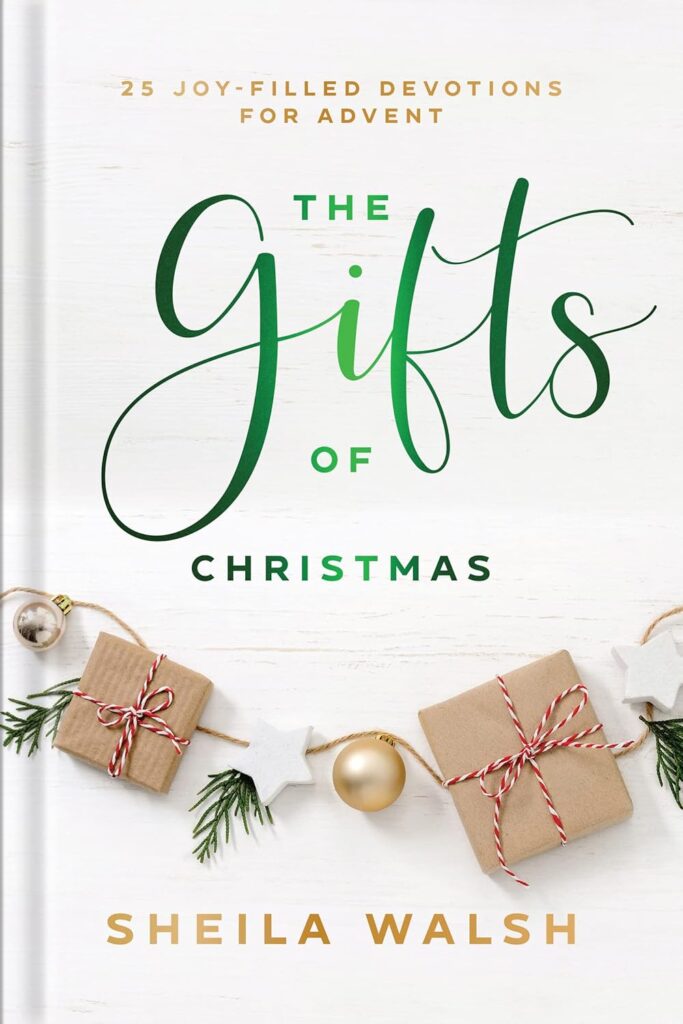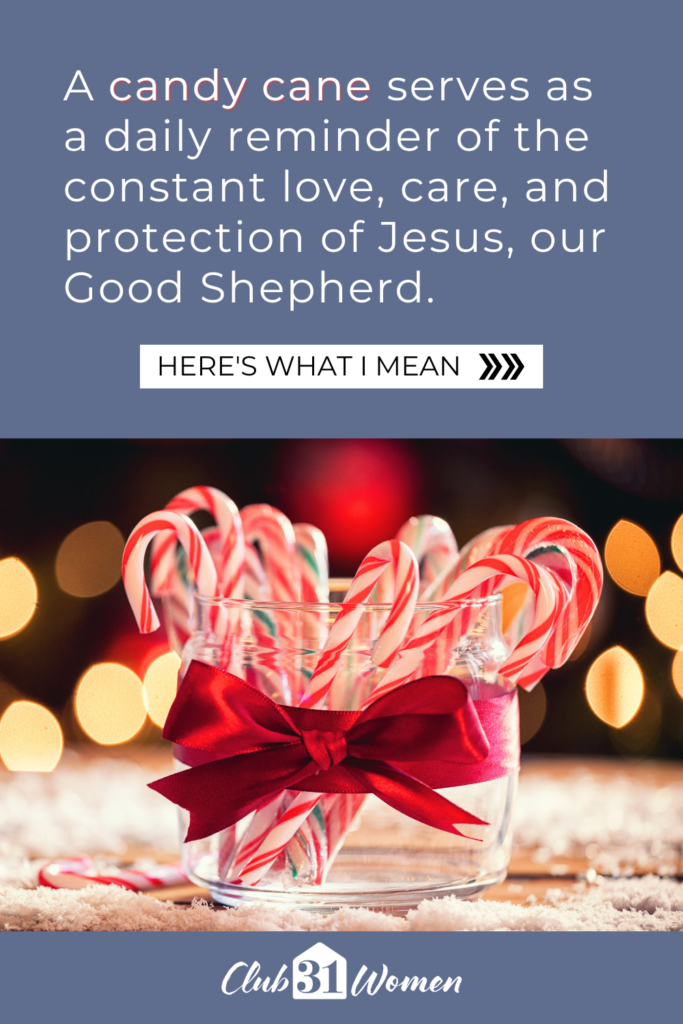A Candy Cane Reminder
A simple candy cane serves as a daily reminder of the constant love, care, and protection of our Good Shepherd.
I was sitting at my desk being interviewed on a drive-time radio show. The host asked me to tell his listeners something they might not know about me. With the overwhelming amount of information available on social media these days, I wasn’t quite sure what to add until I looked down at my desk.

“I have a jar of candy canes on my desk.”
“At Christmas?” he asked.
“Nope. All year round.”
Where Did Candy Canes Come From?
Interestingly, it’s believed that the very first candy cane was produced in 1670 by a choirmaster in Cologne, Germany. The Cologne Cathedral was producing a living nativity that year, and the choirmaster was concerned that it would be a challenge to keep the children in the choir quiet when they saw all the animals and activity.
Plain white candy sticks were popular in Europe at that time, but the choirmaster was concerned that it might be viewed as disrespectful to pass out candy in church just to keep children quiet. So he came up with a much better idea. He persuaded a local candymaker to bend the tops of the sticks to resemble a shepherd’s hook, ultimately pointing to Jesus, the Good Shepherd, which seemed a more reverent offering. It’s not quite clear when the red stripe was added, but nineteenth-century Christmas cards from Europe and America depict plain white candy canes. By the early twentieth century, however, candy canes were striped red and white.
The Lord, Our Shepherd
Each time I pick up a candy cane, I’m reminded of one of my favorite psalms. Psalm 23 is often referred to as “the Shepherd Psalm.” It is such a beautiful picture of the type of shepherd you would see in Israel, and it points ultimately to Christ, our Good Shepherd. I’ve studied a lot about what is typical of shepherds in Israel. Each shepherd in Israel carries a rod and a staff to protect and comfort their sheep. To the sheep they represent care and security.
If one wanders off by itself, the shepherd will use their staff to bring it back to the flock. As each sheep passes into the pen at night, the shepherd will often use their rod to part the sheep’s wool to make sure it isn’t hurt, because injuries are hard to detect through the heavy wool. If needed, a shepherd will anoint the sheep’s head with oil to bring healing and keep annoying pests away. Then the shepherd will lie down across the entrance to the pen. The message is clear: If you want to get to my sheep, you’ll have to come through me.

When we apply the images of this psalm to our lives, they are powerful. Yes, we will all walk through dark valleys—difficult situations— in life. Perhaps you are there right now, but David says we will not allow fear to overtake us because we are not alone—never, not for a moment. The Shepherd is with us.
Our Shepherd Goes Before Us
In Scotland, a shepherd walks behind their flock, but you will never see that in Israel. In Israel, a shepherd always goes ahead and looks for potential danger, with the sheepdogs coming up behind. Did you know that two sheepdogs are mentioned in Psalm 23? They are called goodness and mercy (or “unfailing love”). We’ll be dogged by the goodness, mercy, and love of God until that day when we are finally home with Jesus.
Today, if you feel alone, vulnerable, or afraid, let me remind you that your Shepherd is with you; He is going before you. You might want to keep a candy cane in your pocket to remind yourself of that. As you rest your head tonight, remember that Jesus is with you. And His message is clear: If you want to get to My sheep, you will have to come through Me. That means you are safe in the Good Shepherd’s care.
In His Word
Read Isaiah 40:11. How do you feel knowing the Lord is watching over us? It’s a comforting thought to know we are not alone!
In Your Life
How can you choose to not let fear overtake you today?
What practical step can you take to remind yourself of the Shepherd’s presence in your life? Perhaps it’s a prayer, a verse written on a card, or even keeping a small object like a candy cane nearby to symbolize His constant care.
We Recommend
We recommend The Gifts of Christmas by Sheila Walsh. Sheila draws from stories of simple Christmases past, Scripture, and pearls of wisdom to offer us grace, peace, hope, and a sense of expectation for what truly can be the most wonderful time of the year.

Let’s Connect
Sheila Walsh is an author, Bible teacher, three-time Grammy nominee, and television host who has spoken to over six million people around the world. She cohosts several shows, including Praise and Better Together, on TBN, America’s most-watched faith and family channel. Sheila’s books have sold nearly six million copies and include bestsellers like It’s Okay Not to Be Okay and Praying Women.

